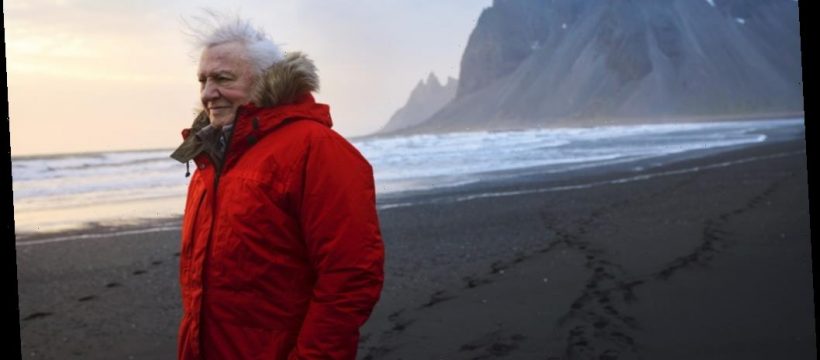EXCLUSIVE: Sir David Attenborough has told Deadline that the BBC is going to have change the way it operates if it’s going to compete with Netflix and Amazon for audiences and creative talent.
Speaking as the BBC prepares to launch its latest natural history spectacular, Seven Worlds, One Planet, the 93-year-old naturalist agreed that there is a threat to the organization he has been associated with since 1952 — but he is heartened to see management being proactive.
In an interview at the Seven Worlds, One Planet premiere on 7 October, he said: “Streaming has transformed the market place, and for any broadcaster to survive, it’s going to have to reflect that. That may mean, particularly when you’ve been as good at it as the BBC has been, that they have to change the game in order to keep up with things.”
It’s an issue that’s certainly on the mind of BBC director general Tony Hall. On the same day as Attenborough spoke to Deadline, the BBC hosted a lavish party for some of Britain’s top writers, producers and stars, where it revealed plans to reinvent iPlayer with a 12-month catch-up window.
Against a backdrop of Fleabag creator Phoebe Waller-Bridge being ripped from the BBC into the arms of Amazon, and The Crown writer Peter Morgan being snapped up on a giant overall Netflix deal, BBC content chief Charlotte Moore appealed to the audience at the party to bring their best work to the BBC, where she said they will be rewarded with a big platform, risk-taking and unrivaled creative freedom.
With an eye on the streaming giants, Moore said the BBC’s TV channels and “human”-curated iPlayer, “won’t let your work disappear without a trace down the back of a global VoD library.” And in a nod to the mega overall deals, Moore added that “we don’t want to own you” – instead, she said, “you get to own your program and your IP.”
Attenborough said it was a “relief to hear the director general saying that they intend to react to these new possibilities.” And the BBC is not just preparing for battle with the streamers — Attenborough himself is a testament to the fact that BBC is also working together with the likes of Netflix. The presenter will host nature series Life In Colour in 2021, the first natural history co-production between the BBC and Netflix.
Before then, he narrates Seven Worlds, One Planet, a BBC America co-production that launches on 27 October in the UK. At the premiere earlier this month, series producer Scott Alexander said the wildlife epic has a “signature look” because of the drone technology used during filming.
The first episode, Antarctica, features a scene in which a gentoo penguin tries to escape a pod of orcas, and the unique drone vantage means it’s as dramatic as a white-knuckle car chase in an action movie. Attenborough said the drones had been transformative for storytelling.
He told Deadline: “If you’ve lived in a world without drones, as I have, you can’t get all kinds of shots. You spend a lot of your time showing the viewer how the relationship between different parts of the plot – where the predator is and where the prey is, or whatever – and suddenly you can do that now, not only from great height, but also quite low because the noise doesn’t frighten these creatures.
“It transforms it. In the past the only way you could do these things was by hiring a helicopter, which was extremely powerful, I think rather dangerous – I’ve certainly been scared – and you had to devote days to doing it.”
Source: Read Full Article
